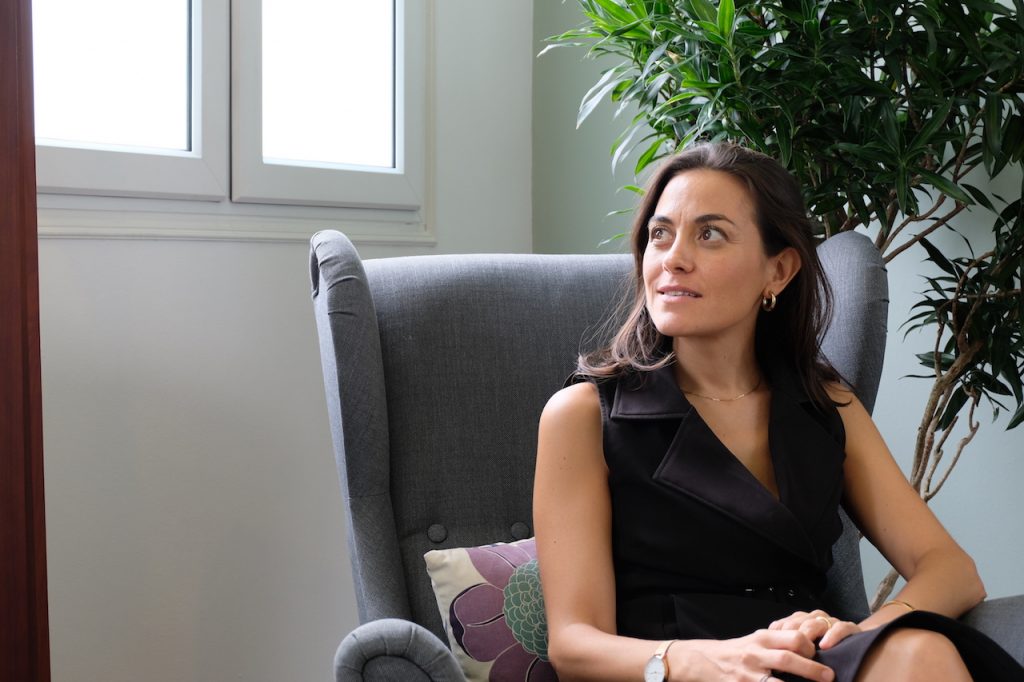Top image: RICE file photo by Zachary Tang.
After every “till death do us part” at the numerous weddings I’ve attended, I’ve secretly thought, “or divorce”.
At merely 29, I’ve heard too many stories about people around my age who break off their engagement a month before the wedding, annul their marriage within a year, or get divorced after having children. I’m usually met with similar reasons for their life-changing actions: they didn’t really want or weren’t fully ready to go ahead, but figured marriage was a relationship milestone that would happen “sooner or later”.
Truth is, love and relationships are inherently complicated. And life just might not go the way we plan, no matter the fancy BTO we set our sights on or the lavish ballroom we book.
But even though I’ve been openly cynical towards weddings, my singular goal in life has always been a successful marriage. In the face of true love, nothing else is as important or fulfilling—not even a successful career. (My sincerest apologies to feminism.)
I spend one afternoon with Cristina Gonzalez, a marriage counsellor with Alliance Counselling Pte Ltd, delving into the mess that comes with the monumental decision to commit the rest of your life to one person, despite the odds.

I’ve always believed that marriage counselling is fundamentally important to the well-being of society in general, but it often gets maligned. Despite how open-minded our society has grown, there’s still a stigma around the practice, as though anyone seeking marriage counselling is automatically a ‘failure’.
Why did you get into this line of work?
Being a psychologist previously, I saw how damaging a bad relationship was for the individual. A good marriage can be the best protective measure against mental illnesses; if you’re struggling with anxiety or depression, it’s more likely you’ll cope better when you have a strong relationship.
Ultimately, the base component of society is the family—and within the family, the basis is the couple.
Yes, that theory is applicable to me. When a romantic relationship falls apart, that affects every single aspect of my life. And when the same type of relationship is going well, it gives me motivation to focus on my career and other areas of my life.
Exactly. Your relationship is the one thing that can be so beneficial and harmful to your life.
When I see couples flourishing and evolving together, and getting over their struggles, such as a big betrayal, during my counselling sessions, the energy is so beautiful. It makes me feel like I’m really helping—not just them, but their kids (if there are kids involved). Perhaps I’m even helping the couple’s parents.
On that note, I wanted to discuss divorce and its implications. But before we get into that, do you believe a marriage can be saved after infidelity since that appears to be one of the leading causes of divorce?
Yes, I absolutely believe so.
Really? Why?
I follow Esther Perel. Do you know her?
I love her work. She has helped me radically reframe my perspective on infidelity, understand the nuances of love, and find closure for so much personal trauma. She’s so good.
Esther Perel once said something so profound about marriage: how come Americans are so tolerant of divorce, yet so intolerant towards affairs?
Even when I see couples, I’ve personally thought, okay, that’s a big betrayal, how will you overcome this? But I have seen many couples overcome infidelity—and even having better relationships with each other after the act.
Usually, the betrayal happens because their relationship was in a bad place, and their needs weren’t met. The affair usually makes that apparent. So when we realise that during therapy, then we have to work on the relationship together.
Sometimes, the affair even helps you look at your partner from another light. For instance, they’re also desirable to other people.
But no doubt, infidelity is very destructive. It threatens the most basic human attachment needs. We want to be the only one in the world, but when infidelity happens, this need is betrayed. The trust is completely gone.
Yeah, you feel like you’re questioning something that you never thought was questionable. You think your life is stable, but then the wind blows and everything just falls apart.
Infidelity has so many layers of complexity that it’s almost an existential questioning. You wonder if everything you had was fake. After all, your relationship was so important and a huge part of your identity.
Infidelity threatens so many layers of the human being that it’s just so devastating.
So how do you help couples to recover?
Try to be completely honest and transparent with each other about everything that happened, even if it involves ‘opening’ each other’s computers. Imagine if they discover the affair, then two days later, they discover something else, that just reinforces the idea that they can’t really trust you. So you have to show reliability again, and prove that you’re a trustworthy human being who made a mistake.
I also advise the partner who’s faithful to be very patient, because the couple would need to revisit the conversation over and over again. But I always tell them to have these conversations with me; it’s a safe environment, where they’re not going to hurt each other.
I get them to focus on the needs that the affair met for them. Maybe they felt really special or really handsome. It’s more about realising the needs and emotional states that were met. For instance, ask questions such as, why now? Why did you need the relationship? Why with her? Why in that place? Why on that trip?
These are more important than the visual stuff that could be traumatising, such as how many times their partner had sex in one night. Those details don’t help the healing process at all.

Something else Esther Perel mentions is people cheat because they’re trying to rediscover a part of themselves that’s lost in the marriage.
Yeah, there’s this quote from her that goes something like, the affair is about discovering the self that you’ve lost. Maybe it’s youth or fun, who knows? Sometimes, the affair isn’t about the novelty of the other, but the otherness of the self.
I use the metaphor of the mirror to help people understand this. When we interact, you’re a mirror of me. You’re nodding and following what I say, which makes me feel knowledgeable and valued.
In a marriage, it’s the same: if my partner never looks at me anymore, how would I feel about myself? Small, ignored, unimportant. So when someone else is suddenly interested in me, I pay attention. It’s about me; it’s not about them. It’s about how they—as mirrors—make me feel.
Taking it back to infidelity, it’s not that the other party is handsome or pretty. They were simply a better mirror. Sometimes we stop reinforcing each other in relationships, especially when we have kids.
I know that’s the case with many relationships, but how can you tell when the other party is solely a mirror? What if it’s … true love?
Yes, of course, that happens too. Sometimes the person you have an affair with is your soulmate and it’s a shame you haven’t met before. If you cannot fix your relationship, then it’s time to reconsider it, right? It’s messy, but it’s something you have to figure out.
Maybe this person made you feel special because you had a connection or had vital things in common. Maybe they understand you, while you never had a real conversation with your husband.
Of course. I guess it’s also easy to feel special if you were an escape from his life.
Totally. In an affair, privacy is very strong. It plays an important role in the novelty of an affair. When you remove that, maybe sex is not going to be so much fun, and maybe he won’t continue making you feel special.
There are also different types of people who cheat, from the person who says “I can’t believe I’m cheating” to the person who’s been cheating all his life. There are people who learn from their families—it’s a pattern; because their father cheated, they also cheat. Then there are those who cheat because they feel entitled; if they’re not getting what they want in their relationship, maybe they can get it elsewhere.
But these people seem fundamentally unhappy. The Atlantic wrote an article based on Esther Perel’s research about how happy people cheat too.
Yes, yes, they do.
Sometimes, it has to do with trying to find something you’ve lost. Maybe you miss something; maybe the affair was an opportunity to experience something that you didn’t even know you miss or are missing, such as the chance to be someone you weren’t allowed to be in your marriage.
It’s scary. Even in a happy marriage, right? It feels like you can’t completely insulate yourself from the possibility of infidelity.
Well, in a happy marriage, it’s less likely. I like to understand the relationship as something that’s precious.
How can you protect it? Firstly, don’t mix the roles up. There is who you are as parents, and who you are as a couple. How do you protect your relationship with each other from everything else? Date each other; have a healthy sexual relationship; talk to each other; meet each other’s needs; show appreciation, respect, and fondness.
You also have to protect your relationship from ‘external predators’. Of course, you’re allowed to do what you want, because you’re a free person. But don’t put yourself in a vulnerable position, such as going for drinks with a nice colleague in a romantic restaurant, because you have a marriage to protect. Even when you’re happy, you still have to protect your relationship.
Perhaps even more so. When you’re happy, that’s when you’re least guarded, so I can imagine even more ‘shock’ from getting ‘attacked’ when you think everything’s fine.
Do you see cases of infidelity where people direct their hate towards the third party instead of their spouse? I’m not sure if they just don’t want to acknowledge that the person they love disappointed them, so they direct their anger towards someone outside of their relationship.
That’s a natural and human response. The ‘other’ is a predator that has taken so much from you. They haven’t only taken your partner, but part of your identity. Not just your present, but your past and future.
When you discover the affair, you revisit the past with new glasses. It looks like everything you believed was a lie: if he’s such a wonderful man, why is he doing this? Your whole story isn’t simply erased—it’s worse, because it’s a lie. The present is miserable too; you don’t know what to do with your life. Then the future is a question mark. So naturally, you are going to hate the third party.
At the same time, an affair is so complex within the relationship itself. The same person who’s supposed to love and protect you has hurt you the most. How can you reconcile these things in the same person? There’s a lot of anger and hatred, so it’s no wonder that the person who’s betrayed hates everyone. Sometimes, they hate me as well. But I understand it.
I understand it too. Anger is a defense mechanism because you’ve been blindsided by everything, so you use anger to protect yourself from everyone. You don’t know who’s going to hurt you anymore.
Yes, then you get so defensive. It’s very intense.

What happens when there’s no solution to infidelity or any marriage struggle, except divorce? How do you advise them?
I don’t advise couples on anything. I put options on the table and they end up arriving at that solution themselves. It’s really liberating, especially if they never thought they had any choice.
But what I’m very clear about is that divorce is going to have a very negative impact on their children—even if it’s the best option, because the alternative is being in a conflictive atmosphere.
There is no such thing as saying the children are going to be okay. Well, yes, they are going to be okay… but only eventually. Sometimes we don’t even know what the impact is going to be until years later. For example, a kid might develop abandonment issues.
On the flip side, I have friends whose parents stay together for the children, even though they don’t love each other anymore. I think that messed up my friends’ ideas of love. When my friends see their parents demonstrating a 3/10 kind of love towards each other, and then get shown a 4/10 or 5/10 kind of love later on in life from their own partners, they believe that is enough for them.
This is why it’s not a good enough reason to stay together for the kids. You should take them into account, but you must be more than parents. You should aspire to have a connection as a couple first and foremost.
In the end, being in a happy relationship is the best gift you can give your children. If your children see a cold marriage, that is what they’re going to pursue in their lives. Always think about the model you portray as parents.
Of course, you can postpone the decision to get a divorce and stay together for the children in the meantime. But don’t make the decision solely for them.
Speaking from personal experience, there’s a lot of hard work (and money!) involved to undo childhood baggage, especially when the baggage happens because of your parents’ divorce. When you’re young, you can’t process emotions, so you’re going to understand the divorce as your parents not wanting you.
Yeah, you think there must be something wrong with you because otherwise your father, for example, would never leave you. When you’re a kid, it’s easier to think it’s your fault and that you’re defective than to think there’s something wrong with the people who are supposed to take care of you. If there’s something wrong with them, who’s going to take care of you? That’s more dangerous.
Essentially, divorce can be very impactful, and it’s very difficult to predict the impact.
But, in the end, if children see their parents pursuing their own happiness in a respectful way, they can learn it’s okay to want what you want and when to give up. Perhaps drawing boundaries is also a healthy way to explore and understand love.
I’m not sure if that’s idealistic since I grew up in a broken family. I’ve always found it strange to see a man’s shoes at the door when I visit my friends’ homes; I don’t know what a healthy marriage looks like. All my life, I’ve been chasing an ideal relationship based on different examples I’ve pieced together from movies, TV, books, and friends talking about their relationships.
Basically, I’d like to know what a successful marriage looks like to you.
A healthy environment is one where kids and adults can express emotions freely, and where there is validation for said emotion. Like, if someone is feeling sad, angry, or moody, there should be a space in the house for that.
Helping kids to label their emotions is important because they will feel uncomfortable things and they need their parents to guide them with their emotions.
A healthy family also means there’s a space for the couple to be a couple. That doesn’t happen often. Many couples have a good relationship, but once they have kids, they no longer do. It might be because having kids already fulfils the woman’s emotional and sensorial needs.

You can’t stop people from wanting a divorce though. Sometimes pain demands to be addressed by severing the root of the problem. I suppose your role is to ensure they know it’s the right decision.
I have many couples who come to me after an affair or a big betrayal. I always tell them it’s not the best moment to make a decision. You need to use the prefrontal cortex to make rational decisions, and you’re not using it when you’ve been betrayed or when your affair has been discovered.
Postpone the decision until you’re less angry, less in denial, and are more in control. Don’t sign any papers yet, until the grieving, pain, and anger have served its purpose.
I want them to figure out if their life is miserable because of their relationship. Sometimes, people project their individual misery onto their relationship.
Right, and they use their relationship as a distraction from their own problems.
It’s easy to feel that your spouse is terrible and you’re miserable because of them. But if we remove that component, are you sure you’re going to be happy? For sure you’ll have other problems, such as finances, kids, and so on. So be very sure that the problem lies with your spouse.
Not everyone can be so rational when they’re hurt or in pain. They can’t detach themselves from the situation to realise they’re hurting because of their own issues.
Therefore, what I do is, aside from couples therapy, I see them individually too. When I see couples individually, I can see patterns emerge.
For instance, I see that they’re reacting to something that happened in their childhood. If someone had a mom who was very punitive, who told her she had to excel in everything and never gave her words of appreciation, she’s going to marry a guy who’s similar. Because human beings tend to look for consistency and gravitate towards familiar situations, even if they’re harmful. And so, when the things her husband says or does trigger things from her past, I help her realise she’s reacting to her mom.
We need to identify our individual ‘heart holes’. If I have a ‘hole’ that comes from being criticised, because my mom was really critical, it’s my responsibility to tell my partner to take extra care when he’s being critical.
We can’t remove all our triggers or live in a bubble. Instead, we have to be aware of what our ‘holes’ and wounds are, so we can protect ourselves.
So what you’re saying is everything can be traced back to childhood?
Not everything, but many things can be traced back to childhood and early adolescence. These hidden learnings cannot be expressed in words, but it makes us behave in certain ways. My job is to bring awareness to that.
For example, you can feel really bullied by your husband, even though you know he loves you and he’s not trying to make fun of you. When you try to challenge your feelings by trying to be cognitive about the situation, but it doesn’t connect, that’s when you know your feelings stem from a pre-verbal phase in life.
In an odd way, it reassures me to know there might be many deeply rooted problems that aren’t caused by the relationship itself. But I suppose there are also couples who are less self-aware. Do you have many who come to you when they’re past the point of no return?
For sure, I wish some couples had come to me earlier, so we can identify problems and stop them from hurting each other so much. Because at some point, I don’t know if it’s possible to heal.
With certain couples, both of them are very dysfunctional individuals. You can see that one party’s problem triggers another’s problem, and it has a terrible impact on their children. These are couples who are better off out of the relationship for them to flourish individually and to take care of the children.
If you’re going to pick divorce in the end, just be sure that there is no other option. Be sure that you’ve exhausted every avenue in fighting for the relationship.
You have to choose the ‘last resort’ knowing that it’s fine.
Yes, because you’ve not only tried for your kids, but for yourself as well.
And when you know something is the best option for yourself, that’s when you get true and complete closure.
Please don’t divorce us. Let’s talk it through: community@ricemedia.co.






